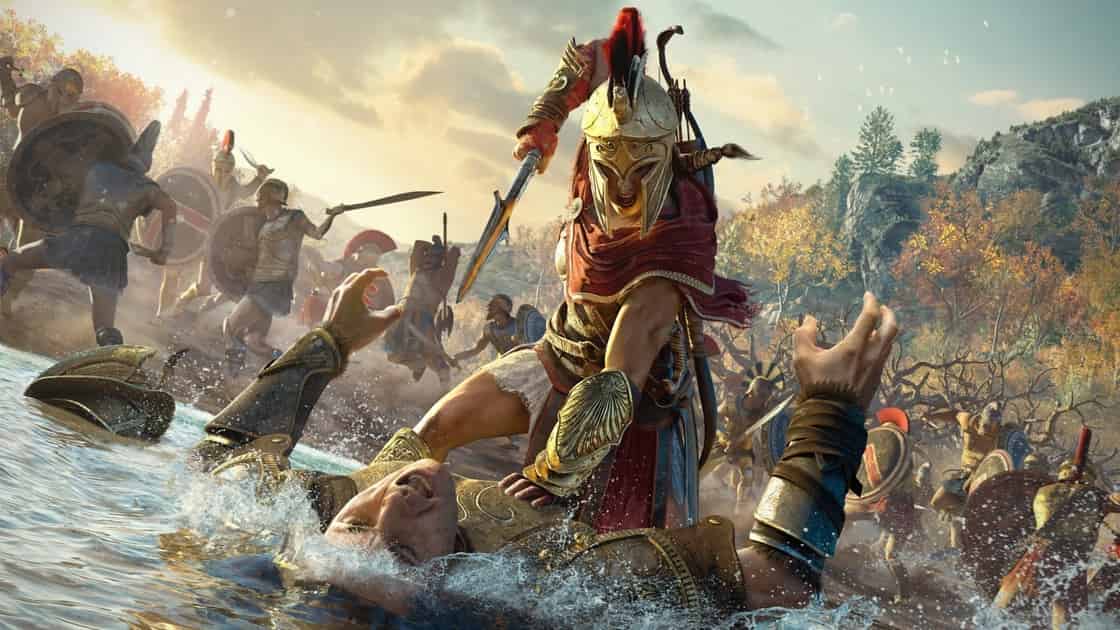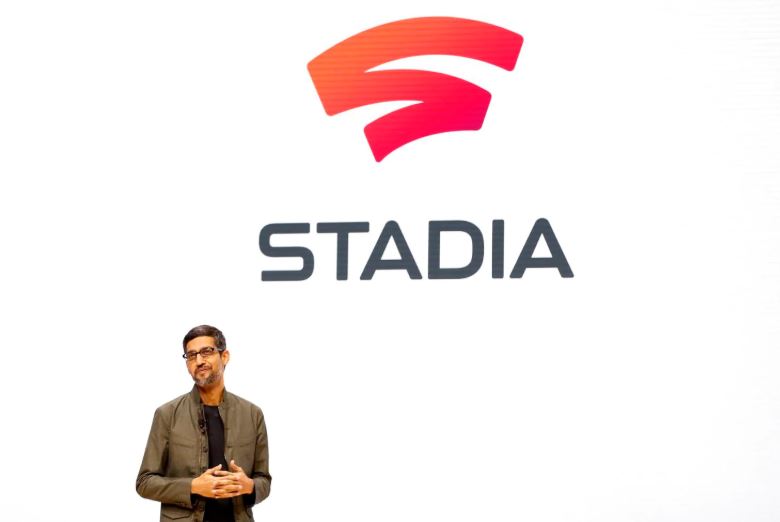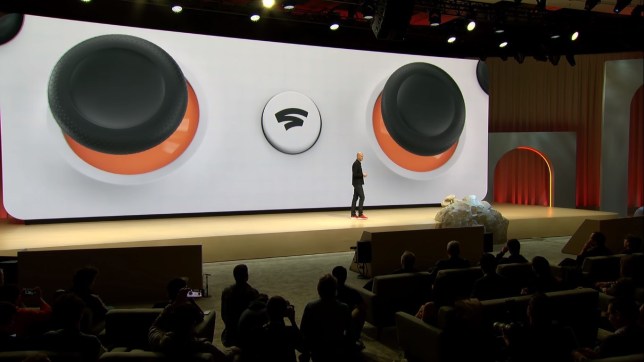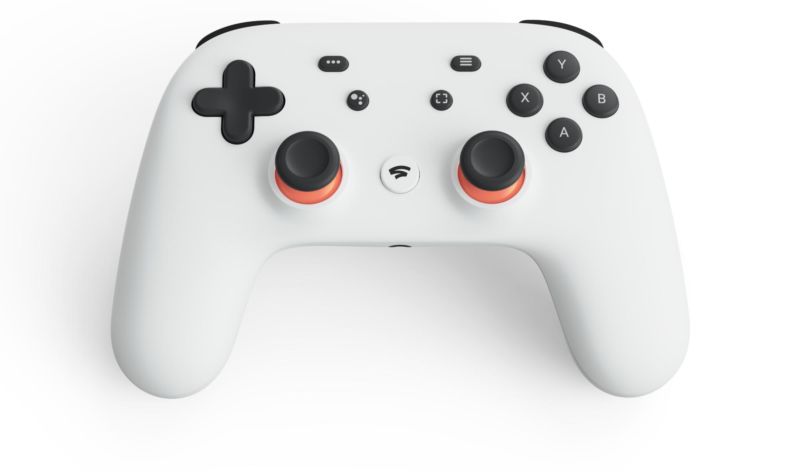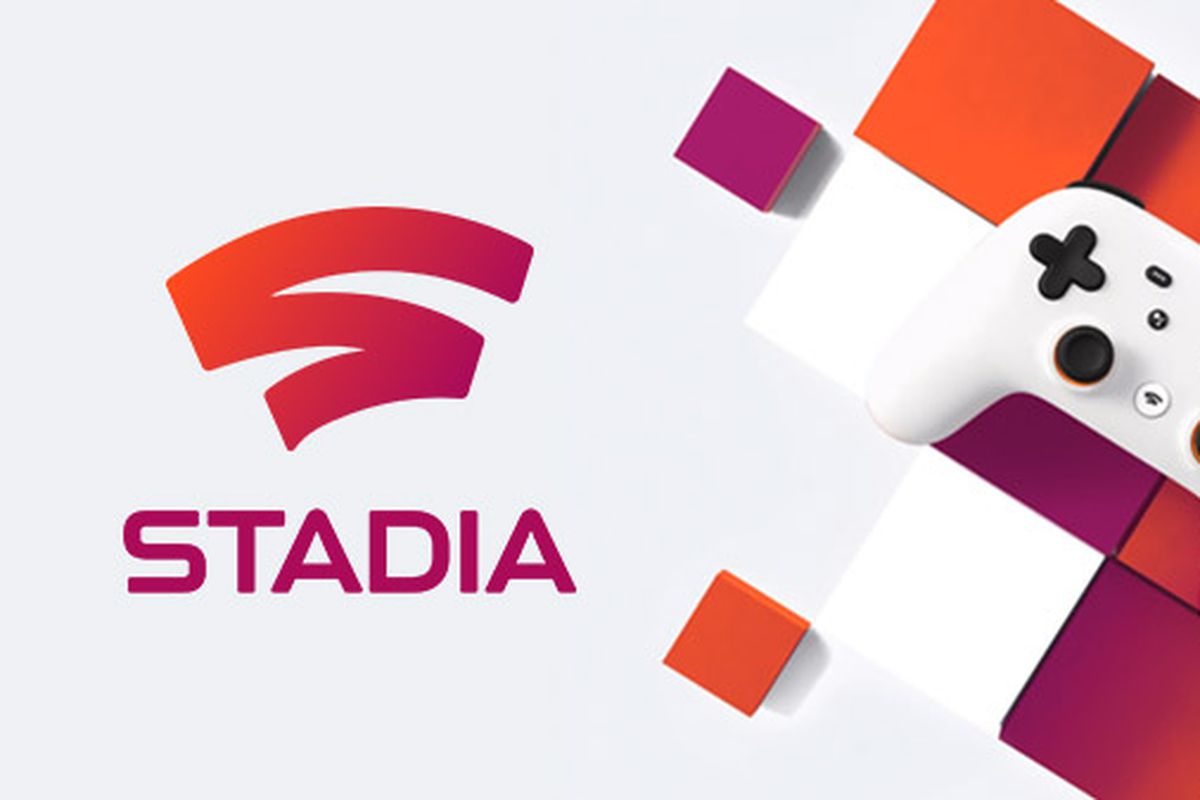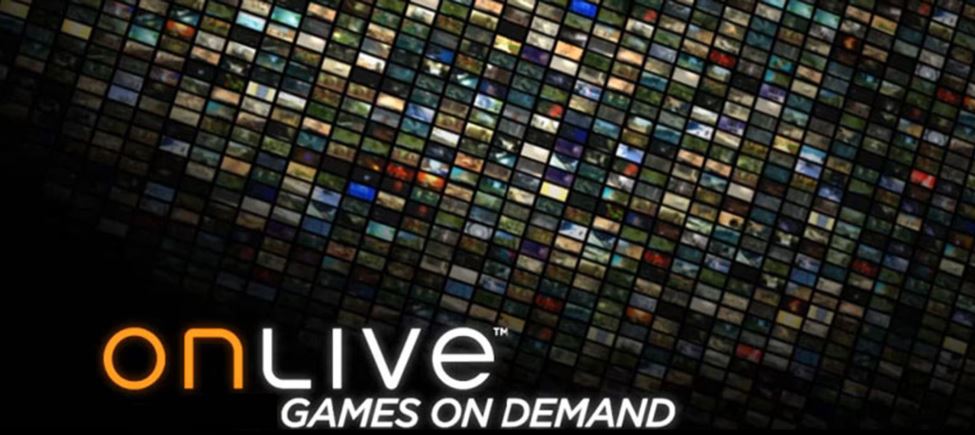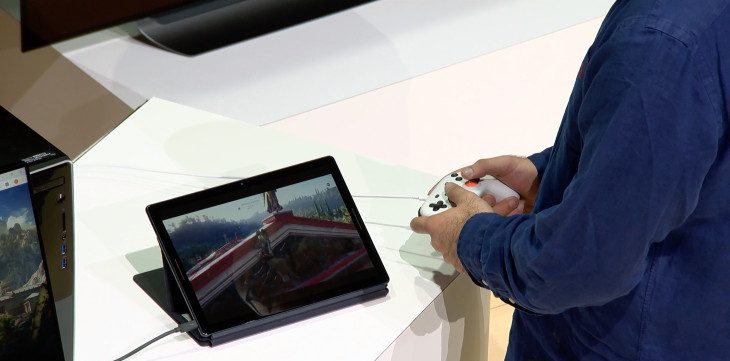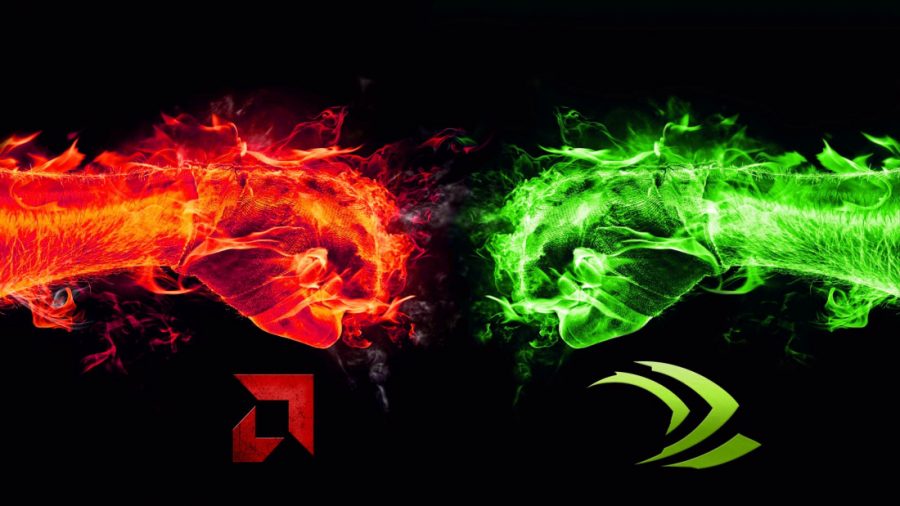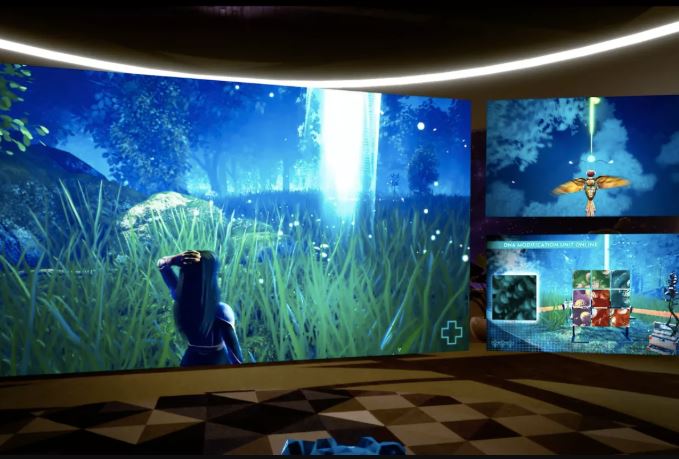Google Unveils Google Stadia – Gaming Console That Can Run Any Game on Any Computer
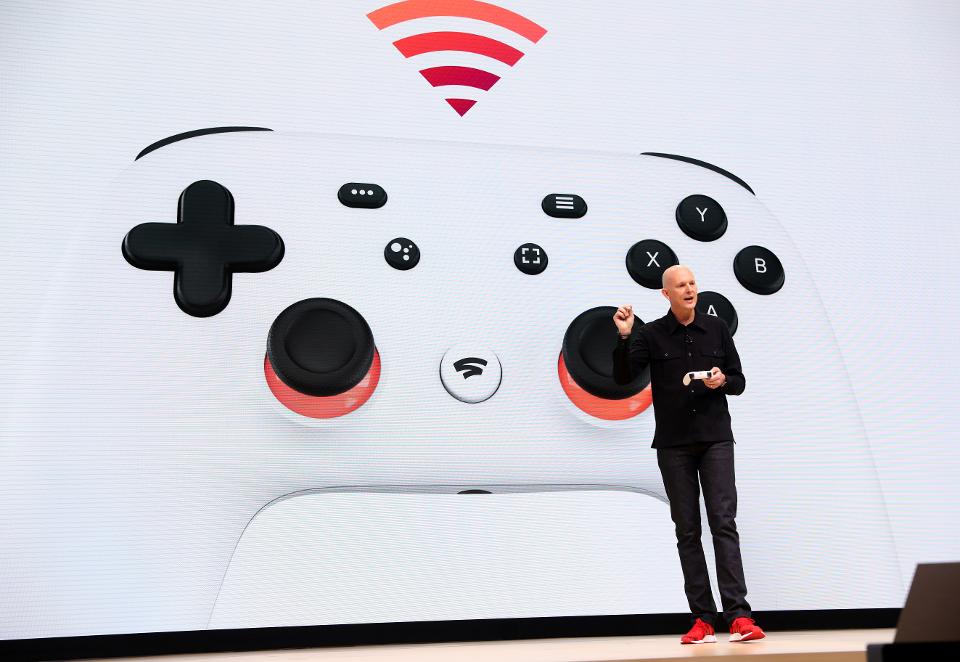
Google Stadia:
The Gaming industry has come a long way since the days of Tetris and Pac-Man. With the boom in technology and the subsequent technological revolution, the average game lover has now access to lots of games. FPS, TPS, RPG – you name it, they got it. Atari and Nintendo have given rise to a lot of gaming consoles. The games that you play have also become much more advanced and are adorned with life-like, stunning visuals. The only thing that has shrunk now is our pockets. As the gaming industry reaches new heights, the prices for the common man to buy and play a game has also sky-rocketed to stupendous lengths.
The PC gaming industry also demands a lot of money to be shelled out for their customers to enjoy any game launched in recent years. The outcome – our ability to enjoy the good old days of gaming are almost gone. If you do not have the money, you are not allowed to enjoy playing a game. Is there any way that an average kid can play high spec games like Call of Duty: Advanced Warfare, Crysis 3 or Far Cry 5 without crying over their PC being too old or obsolete? Turns out, there is something out there that could be the final answer to this now a decade-old dilemma. Presenting – Google unveils Google Stadia – Gaming Console that can run any game on any computer!!!
Google has worked tirelessly to bring us back to the era of inexpensive, fun to play games. In GDC 2019, Google unveiled its latest technological marvel, the Google Stadia – the everyman’s gaming console. Google Stadia intends to revolutionize traditional gaming by introducing a whole new approach to how you think and feel about the conventional gaming experience. And all you need is a good internet connection and a chrome browser!! We are not even kidding. You can even play Assassin’s Creed: Odyssey, one of the most spec demanding games available (it requires an Intel Core i5-2400 CPU, an AMD Radeon R9 or Nvidia GeForce GTX-660 GPU above, and most important of all – at least 8 GB of RAM) on a 2GB RAM mobile phone!
And trust us when we say this, neither will you going to compromise on visuals(you can play the game at a minimum of 60 Frames Per Second, which is a challenge for even the most powerful of PC gaming rigs and consoles) nor is there going to be any lag while playing the game. That is the beauty of Google Stadia.
Here is how it works – Google Stadia is basically an interactive cloud streaming service. It is like playing video online, the only difference being you control how the character in the video moves around. Like we said, it is just like playing a video but you can do whatever the hell you want with the main character in the game. Stadia is a reality thanks to Google’s extensively well-spread cloud centers. It connects to the internet and lets you play a game via a phenomenon called “Interactive streaming”. But what about the hardware! Don’t they count? Actually, they do.
But Google has managed to circumvent the hardware element, which is the crux of any decision when it comes to buying a gaming rig these days, by using its own custom GPU using a super-fast HBM2 Processor that has a capacity of 10.7 Teraflops. To put things into perspective, the average high-end gaming PC or console has a GPU with a throughput of a maximum of 10.1 Teraflops. The GPU is located in a secured server site far away and can be accessed by anyone with an internet connection. This is why Google Stadia is so amazing – you do not need any hardware. Just connect to Google’s own online GPU and you are ready to go.
Now you must be thinking – what a brilliant concept!! Why did not the world think of it sooner!! Why were we deprived of this wonder of technology for so long?? The thing is Google Stadia is not a new concept. There have been tons of such concepts in the past years. California based OnLive was one such company that tried to introduce cloud-based interactive streaming video games. Japan-based Gaikai, it’s then largest competitor, was another such company. Sony’s PlayStation Now also ran on similar lines.
So what is so special about Google Stadia? Is it just another such run off the mill product that is bound to die a slow death like OnLive and Gaikai were? The short answer is – NO! The reason why Google Stadia has a high chance of succeeding is that the amount of internet penetration and the magnitude of internet speed right now are several times better than what they were during the time of OnLive and Gaikai. Moreover, it has Google backing it. The fact is – Google Stadia has taken the best of PlayStation Now, OnLive and Gaikai and turned it into something entirely new and revolutionary.
That said, Google has its own motives behind launching Google Stadia. They may sound benevolent in their intentions but they are still a profit-making entity. If you ask us, Google is not trying to enter into a new market sphere. Instead, they are strengthening the position of their greatest cash cow – YouTube. Google Stadia will work on YouTube, where you can glance through a list of games to play. It will be like Netflix, but for games.
YouTube’s gaming Director Ryan Wyatt claimed that out of the 200 Million users Google gets daily, a majority of them are due to YouTube. The section that gets the most views on YouTube is online gaming content. As of now, YouTube has recorded about 50 Billion viewed hours of such content. Imagine the number of ads that could reach the world if Google decided to work on this untapped segment and cash in on it. With Google Stadia, Google intends to become the online advertisement king. With Stadia, the possibilities are endless.
It is not like Google is a completely malicious entity. Unlike EA Games, they are not just about the money. The Google Stadia cloud gaming service will come loaded with added features. You can watch a video game streaming content on YouTube and click on it to play form the exact same point. If you have paused the game in one device, Google’s A.I will remember where you left and the game will start from the very same point should you log in to your Stadia account from another device.
Google Stadia comes with a Wi-Fi enabled controller that can be used as your universal joystick while playing games. It looks like a general PS4 controller but with two special features. To be precise, two extra buttons. The Capture button is able to screen-shot and video record for online streaming. The Google Assistant Button becomes helpful as an onboard A.I assistant that can provide us with walkthroughs and hidden areas in the game, should we get stuck or start exploring.
Google Stadia is not going to make it easy for the gaming industry, which has mainly been an oligopoly of a few big houses. Sony, Nvidia, AMD, Electronic Arts, Amazon, Microsoft, and Valve govern the entire 135 Billion USD industry. Stadia will create a disruption that might make the others rethink or retrace their steps. Google has his own profit-making agenda for doing this. Many might think that Stadia will bring forth a much-needed revolution in the gaming sector. But what if Google Stadia becomes a monopoly? Imagine this – no matter what game you play or stream, all you do is switch from one Google service to another. That is a scary thought – one private entity holding the nerve center of the entire multi-billion dollar industry.
For now, it is just a concept. Google, its GDC 2019 convention, only showed minutes of live streaming of Assassin’s Creed: Odyssey being played. That is certainly not enough to convince the fans. Google is unveiling Stadia in only a handful of countries like Canada and the US. But with its second to none cloud infrastructure, it will soon launch the gaming platform in several other countries. Apart from Assassin’s Creed, Google Stadia also runs Doom: Eternal. Google has already set up a Stadia-Exclusive Game Studio that will design and develop games customized for this console. But in due course of time, as the console garners the entire world’s fan base (which it will), every game will soon converge into one universal gaming platform!
All Hail Google Stadia – the future of gaming.
